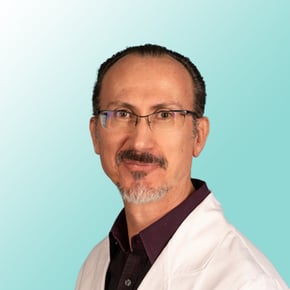Acupuncture proves to be an effective strategy for overcoming post-holiday blues, offering a medical yet natural approach capable of rebalancing the mind and body during the colder months.
As winter sets in, it's not uncommon to experience a sense of melancholy, particularly amidst the stress of returning to routine after the holidays. Days shorten, temperatures plummet, and our mood can often follow suit. However, what if this persistent low mood becomes something more? Enter Seasonal Affective Disorder (SAD), a form of depression commonly known as Winter Blues or Holiday Blues.
The situation is not as bleak as it may appear, though. Among the numerous solutions, one is increasingly gaining recognition for its effectiveness: acupuncture. This age-old medical therapy is emerging as a valuable ally in combating winter blues, anxiety, and stress.
What are the holiday blues and how can you recognize them?
Holiday blues or Seasonal Affective Disorder (SAD) is a condition marked by feelings of sadness and depressive symptoms that exhibit a seasonal pattern. Typically, it occurs during the winter months when days are shorter, and temperatures are colder. The primary cause of SAD is associated with disruptions in circadian rhythms due to reduced light exposure, affecting the production of serotonin and melatonin, thereby influencing sleep and mood.
Winter SAD differs from traditional depression by featuring heightened appetite, especially for carbohydrates, and increased sleep. Several factors elevate the risk of developing SAD, including a family history of similar disorders, the presence of bipolar disorder, age (with the most common onset in the 20s and 30s), and residing in higher northern latitudes.
Acupuncture to reduce stress
In addition to this scenario, we can factor in the stress of returning to work after winter vacations. This stress involves a feeling of anxiety, tension, or discomfort that many individuals encounter when coming back to the office after a break. This phenomenon often stems from the contrast between the freedom and relaxation experienced during vacations and the demands and routines of daily work. It may manifest through symptoms like insomnia, irritability, anxiety, difficulty concentrating, mood swings, and an overall sense of being overwhelmed. Effectively managing this type of stress requires a “gradual return to work” approach, a healthy work-life balance, and relaxation techniques such as acupuncture.
Acupuncture: a therapy for happiness
However, the precise mechanism through which acupuncture effectively addresses winter blues and stress prompts a question: how exactly does it contribute to your well-being?
As previously mentioned, this disorder often stems from a disruption in the body's circadian rhythms, exacerbated by reduced exposure to sunlight. This disturbance, in turn, interferes with the production of serotonin and melatonin, pivotal neurotransmitters regulating mood and sleep.
Acupuncture intervenes in these imbalances by targeting specific points, thereby stimulating the production of endorphins, commonly known as the "hormones of happiness". This therapeutic process facilitates the restoration of neuro-endocrine balance, effectively alleviating associated symptoms. Importantly, its impact extends beyond the physical realm, constituting a journey toward psychological well-being.
Back to work? Leave the stress behind thanks to the benefits of acupuncture
Examining the benefits of acupuncture, a review of 64 studies involving 7,104 participants revealed noteworthy outcomes. The findings indicated a reduction in depression levels following acupuncture treatments. This positive impact on emotional well-being is attributed to the stimulation of endorphin and serotonin release, as well as the restoration of autonomic nervous system balance.
An important aspect of acupuncture lies in its adaptability. Each session is personalized to cater to the specific needs of the individual, offering a customized treatment plan. Particularly beneficial for addressing anxiety and depression, acupuncture's focus on improving sleep quality and promoting mental relaxation makes it an appealing treatment option, noteworthy for its absence of side effects.
For anyone considering acupuncture as a potential treatment, it's essential to choose a qualified and experienced physician to ensure a safe and personalized approach.
In conclusion, medical acupuncture offers an effective and natural solution to combat seasonal ailments and the stress that often accompanies returning after the holidays. With its side-effect-free and individualized approach, this therapeutic option can be a valuable ally in your journey to wellness during and after the winter vacation period.
Shake off that post-holiday stress – it's time for a new year and a new, stress-free you! Cheers to a brighter and happier chapter!

Bibliography :
- Pilkington K, Kirkwood G, Rampes H, Cummings M, Richardson J. Acupuncture for anxiety and anxiety disorders-a systematic literature review. Acupunct Med. 2007;25(1-2):1-10.
- Errington-Evans, Nick. "Acupuncture for Anxiety". CNS Neuroscience & Therapeutics 18, fasc. 4 (avril 2012) : 277-84.
- Smith, Caroline A, Mike Armour, Myeong Soo Lee, Li-Qiong Wang, et Phillipa J Hay. "Acupuncture for Depression". Édité par le Cochrane Common Mental Disorders Group. Base de données Cochrane des revues systématiques 2018, fasc. 3 (4 mars 2018).
- Pilkington K. Anxiété, dépression et acupuncture : A review of the clinical research. Auton Neurosci. 2010.

